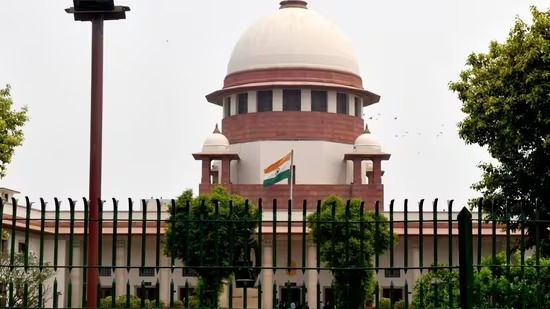Amitha Reji George, Pune
A five-judge Supreme Court Constitution bench on Thursday canceled the electoral bonds scheme, which permitted anonymous contribution to political parties,calling it as unconstitutional. Supreme Court’s five judges namely, Chief Justice of India DY Chandrachud,and justices BR Gava, JB Pardiwala, Manoj Mishra, and Sanjiv Khanna decided the judgment. The Supreme Court declared that the Plan violates the right to information.
Electoral bonds are securities that people or businesses can buy from banks and provide to a political party, which can then be redeemed for cash and donations. The financing scheme was introduced in 2018, in an attempt to increase openness in political fundraising. The electoral bonds program was positioned as an alternative to financial contributions to political parties.
Only political parties registered under Section 29A of the Representation of the People Act, 1951 and those that received at least 1% of the total votes cast in the most recent elections to the Lok Sabha, or a state legislative assembly, are eligible to receive electoral bonds, as per the scheme’s provisions.Multiples of Rs 1,000, Rs 10,000, Rs 1 lakh, Rs 10 lakh, and Rs 1 crore are available for purchase as electoral bonds. Political party donations can be made with an account that conforms with KYC standards. Since the donor’s name and other information are not included on the bond, electoral bonds are regarded as anonymous. Furthermore, since there is no cap, any number of bonds may be purchased.
The Bharatiya Janata Party received over Rs 1,300 crore through electoral bonds in FY23, according to statistics released by the news agency PTI.The BJP’s annual audited report, which was submitted to the Election Commission, states that the party received funds of Rs 2,120 crore in the fiscal year 2022–2023, with electoral bonds accounting for 61% of those contributions.In FY23, the Congress received about Rs 171 crore, as opposed to Rs 236 crore in FY22.Through this scheme, the Samajwadi Party received Rs 3.2 crore.
Major points from this verdict
- The Electoral Bonds program was declared unlawful by a five-judge panel .The decision was made unanimously on Thursday.
- During the reading of his ruling, the Chief Justice stated that the anonymous electoral bonds violate both Article 19(1)(a) and the right to information.
- The Supreme Court ruled that since corporate payments through Electoral Bonds are made only as a quid pro quo, information about those donors must be made public.
- The Supreme Court issued two verdicts today, both coming to the same conclusion but some different findings.
